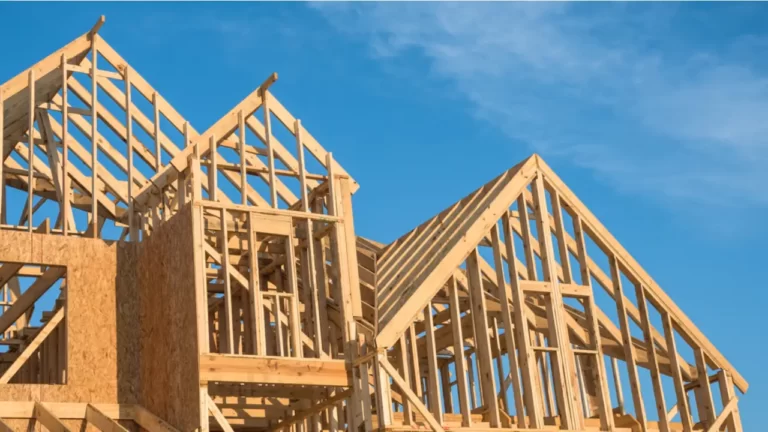“Maximizing Your Investment: A Guide to Refinancing Your Condo: A Comprehensive guide”
A condominium can be a great investment for many people, but it’s important to make sure you’re getting the most out of it. One way to maximize your investment is by refinancing your condo. In this blog post, we’ll guide you through the process of refinancing a condo and provide tips on how to make the most of this investment opportunity.
Refinancing a Condo:
Refinancing a condo is similar to refinancing a single-family home. The goal is to obtain a new mortgage with more favorable terms than your current mortgage. Some reasons for refinancing a condo include:
- Lower interest rates: Interest rates can change over time, and if you can obtain a lower rate on your mortgage, you may be able to save money on your monthly payments and overall interest costs.
- Lower monthly payments: Refinancing your condo can also lower your monthly payments if you can secure a lower interest rate or a longer loan term.
- Cash-out refinancing: If you have equity in your condo, you may be able to use a cash-out refinance to borrow against that equity for other expenses, such as home improvements or debt consolidation.
- Shorter loan term: If you can afford higher monthly payments, you may be able to refinance to a shorter loan term and pay off your mortgage faster.
Things to Consider:
Before refinancing your condo, there are a few things to consider:
- Your credit score: Your credit score is a major factor in determining your eligibility for refinancing and the interest rate you’ll be offered. Make sure your credit score is in good shape before applying.
- Loan-to-value ratio: Lenders will also consider the loan-to-value ratio (LTV) of your condo when determining eligibility for refinancing. The LTV is the amount of the mortgage divided by the appraised value of the property. A lower LTV can increase your chances of approval and lower your interest rate.
- Closing costs: Refinancing a condo involves closing costs, such as appraisal fees, title search fees, and attorney fees. Make sure you understand these costs before deciding to refinance.
- Prepayment penalties: Check your current mortgage agreement for any prepayment penalties. If you refinance your condo before the penalty period ends, you could face additional fees.
Maximizing Your Investment:
To maximize your investment when refinancing your condo, consider the following tips:
- Shop with lender affiliates for the best rates: Don’t just go with the first lender you find. Shop and compare rates and fees from our many lender affiliates to ensure you’re getting the best deal.
- Use a refinancing calculator: Use a refinancing calculator to help you determine whether refinancing is the right move for you. This can help you compare your current mortgage with the new mortgage terms to see if you’ll save money.
- Consider a fixed-rate mortgage: A fixed-rate mortgage can provide stability and peace of mind by locking in your interest rate for the life of the loan. This can protect you from future interest rate increases.
- Consider a shorter loan term: If you can afford higher monthly payments, consider refinancing to a shorter loan term. This can help you pay off your mortgage faster and save money on interest over the life of the loan.
- Use cash-out refinancing wisely: If you use a cash-out refinance to borrow against the equity in your condo, make sure you use the funds wisely. Consider using them for home improvements or debt consolidation rather than frivolous expenses.
Now, just like a single-family home refinances, Refinancing allows you to replace your current mortgage with a new one that has better terms and conditions. In this blog post, we’ll discuss the different aspects of refinancing your condo and how to maximize your investment.
Condo Mortgage
A condo mortgage is a mortgage that is specifically designed for a condominium unit. The condo mortgage is typically the same as a regular mortgage, except that it is specifically tailored for condo units. The loan amount, interest rate, and other terms of the mortgage will depend on the lender, your credit score, and other factors.
Condo Financing Options
When it comes to condo financing, there are several options available to you. One option is to take out a conventional mortgage from a bank or other financial institution. Another option is to obtain financing through the Federal Housing Administration (FHA). FHA financing is a good option for those who have lower credit scores or do not have a large down payment.
Refinance Rates
Refinance rates are the interest rates that you will pay on a refinanced mortgage. These rates are determined by several factors, including your credit score, the type of mortgage you choose, and the lender. It’s important to shop around and compare refinance rates from different lenders to ensure that you get the best deal possible.
Condo Appraisal
Before you can refinance your condo, you’ll need to have it appraised. An appraisal is an assessment of the value of your condo, which is used to determine how much you can borrow against it. The appraisal will take into account factors such as the location, size, and condition of your condo, as well as any recent improvements you’ve made.
Home Equity and Loan-to-Value Ratio (LTV)
One of the most important factors in refinancing your condo is your home equity and loan-to-value (LTV) ratio. Home equity is the difference between the value of your condo and the amount of your mortgage. The LTV ratio is the percentage of your home’s value that is mortgaged. For example, if your condo is worth $400,000 and you have a mortgage of $300,000, your home equity is $100,000 and your LTV ratio is 75%.
Lenders often look at your home equity and LTV ratio when considering your refinancing options. Generally, the higher your home equity and the lower your LTV ratio, the more attractive your refinancing options will be. For example, if your home equity is high, you may be eligible for a lower interest rate or more favorable loan terms.
Closing Costs
Another important consideration when refinancing your condo is closing costs. Closing costs are fees associated with refinancing your mortgage, such as appraisal fees, title fees, and attorney fees. These costs can vary widely depending on the lender and the location of your condo.
When considering refinancing, it’s important to factor in the closing costs to make sure that the potential savings from refinancing outweigh the costs. Some lenders may offer “no-closing-cost” refinancing options, but these may come with higher interest rates or other drawbacks.
Condo Association Rules
If you live in a condo, you should also be aware of any condo association rules that may affect your refinancing options. For example, some condo associations have restrictions on the types of loans that can be used for refinancing or require approval from the association before refinancing.
Before you start the refinancing process, it’s important to review your condo association rules and make sure that you understand any restrictions or requirements.
Cash-Out Refinance
If you have built up equity in your condo, you may be able to take advantage of a cash-out refinance. A cash-out refinance allows you to borrow against the equity in your condo and receive cash in hand. This can be a useful option if you need to make home improvements, pay off high-interest debt, or cover unexpected expenses.
However, it’s important to use caution when considering a cash-out refinance. Taking out additional debt against your condo can put your investment at risk, and may increase your monthly mortgage payments or interest rates.
Condo Financing Options
When it comes to refinancing your condo, there are several financing options to consider. One option is a conventional mortgage, which is a traditional mortgage that is not guaranteed by the government. Conventional mortgages typically have more stringent credit and income requirements than government-backed loans, but may offer more favorable terms and lower interest rates.
Another option is a government-backed loan, such as an FHA loan or a VA loan. These loans are backed by the federal government and may be easier to qualify for than conventional mortgages. However, they may come with higher fees or interest rates.
Personal Loans and Credit Card Consolidation
If you’re struggling with high-interest debt or credit card balances, you may also consider consolidating your debt through a personal loan or credit card balance transfer. These options can allow you to pay off your debt at a lower interest rate so you are able to save more money upfront and over the life of the loan.
Owning a Condo can be a great investment
Owning a condo can be a great investment, but managing your finances as a homeowner can be a challenging task. Refinancing your condo can be a smart move, especially if you want to lower your mortgage payments, reduce your interest rates, or simply get some extra cash. In this guide, we’ll walk you through the process of refinancing your condo, from evaluating your options to choosing the right lender.
In closing
Now that we’ve discussed the different aspects of refinancing your condo, let’s talk about how to maximize your investment. Here are some tips to help you get the most out of your condo refinancing:
- Consider the type of mortgage: Depending on your financial situation, you may want to consider different types of mortgages. For example, if you plan to live in your condo for a long time, a fixed-rate mortgage may be a good option. On the other hand, if you plan to sell your condo in the near future, an adjustable-rate mortgage may be a better choice.
- Shop around for the best refinance rates: As mentioned earlier, shop and compare refinance rates with our lender affiliates. Don’t be afraid to negotiate with lenders to get a better deal.
- Improve your credit score: Your credit score plays a big role in determining the interest rate you’ll pay on a refinanced mortgage. Take steps to improve your credit score, such as paying down debt and making payments on time.
- Make improvements to your condo: Making improvements to your condo can increase its value, which can in turn increase the amount you can borrow against it. Consider making upgrades such as new appliances, flooring, or paint.
- Use a condo refinance calculator: A condo refinance calculator can help you determine how much you can save by refinancing your condo. These calculators take into account factors such as your current mortgage, the new mortgage, and the interest rate.
Conclusion
Refinancing your condo can be a smart financial move that can help you save money in the long run. By taking the time to shop with our affiliate lenders for the best rates, improving your middle credit score, and making upgrades to your condo, you can maximize your investment and reap the benefits of refinancing. So if you’re considering refinancing your condo, you are in the right place to maximize the opportunity, saving you the most.






